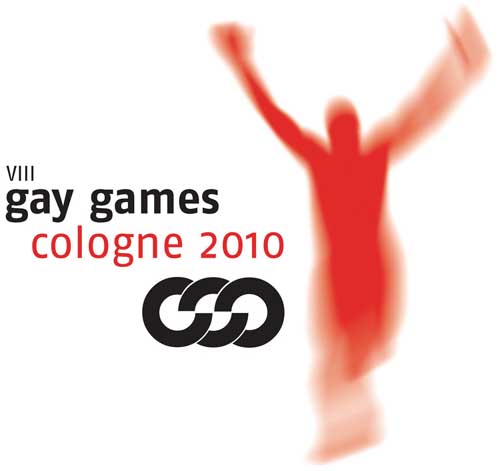
The Federation of Gay Games (FGG) announced that the 2010 Cologne Gay Games VIII will implement testing for anabolic steroids and other performance enhancing drugs in all sporting events. The testing at the 2010 Cologne Gay Games will be based on the stingent World Anti-Doping Agency (WADA) doping protocols. The 2006 Chicago Gay Games introduced drug testing to athletes in powerlifting, bodybuilding and wrestling for the first time.
Steroid testing at the Gay Games highlights the problem of therapeutic use exemptions (TUEs) that allow the use of banned substances for legitimate medical indications; anabolic-androgenic steroids are routinely used in HIV patients. The WADA protocols allow for TUEs but do not address the acceptability of exemptions for the use of anabolic steroids for HIV. The Federation of Gay Games hopes to redefine and improve the WADA protocols by encouraging “mainstream sports become not just more accepting of gay athletes, but more accommodating of athletes with chronic medical concerns – especially HIV (“Gay Games VIII to expand and redefine drug testing,” June 10).
Go through any of the materials distributed by the Olympics and WADA and one will find no mention of queers. The only reference they make to AIDS is that athletes should be careful not to get infected. There is no acknowledgment of HIV-positive athletes or indeed any agreed upon approach of how to balance the desire to keep performance enhancing drugs from skewing competition results while encouraging aging recreational athletes to continue to compete while using legitimately prescribed medications.
Gene Dermody of San Francisco, former sports officer and president of the FGG who attended the site visit, said that not only is the accuracy and impartiality of mainstream sports drug testing questionable, but that many “other performance enhancing behaviors are not ever questioned.”
Yet, in the steroid-tested powerlifting competition at the 2006 Chicago Gay Games, HIV-positive athletes treated with anabolic steroids were NOT granted therapeutic use exemptions to compete in regular competition. The “inclusiveness” of steroid-using HIV athletes was maintained by creating a completely separate category of competition solely for steroid using athletes (“Muscled Out: Gay Games VII Bans Steroid Use,” June 6, 2005).
In the powerlifting competition, participants who are HIV-positive and taking steroids or similar supplements will not be allowed to compete in regular competition. (emphasis added)
Yet, Nancy Harris, the CGI Sports consultant who worked with the Federation of Gay Games on the new policy, says, “Our powerlifting competition remains inclusive,” and that the events will feature a “Guest Lifter” classification.
“(This) will allow athletes using otherwise banned medical therapies for conditions such as HIV to participate and be judged alongside their peers without being subjected to drug testing,” Harris says. “While ‘Guest Lifters’ will not be eligible for Gold, Silver, or Bronze medals, all will receive a Gay Games participation medal and the opportunity to perform their personal best.”
Athletes with HIV may critique this exclusionary policy at the next Games. But it may be the only way to prevent some athletes “ even those with life-threatening illnesses “ from getting a perceived upper hand.
At least, the Federation of Gay Games acknowledged the problem of therapeutic use exemptions.
That is, performance enhancing drugs such as anabolic steroids, growth hormone, albuterol, clenbuterol, etc. may have significant performance-enhancing effects even when used at therapeutic dosages for legitimate medical conditions.
WADA and other drug testing agencies refuse to acknowledge this as a potential problem.
It remains to be seen whether banning all athletes who use PEDs (or at least anabolic steroids) for therapeutic purposes from regular competition is the best solution. Is the creation of a separate class of competition for athletes who use anabolic steroids and other PEDs (therapeutically) the best approach to the problem? It doesn’t seem like much of an improvement over creating a separate Games for all steroid-using athletes? Or perhaps even permitting medically supervised doping?
About the author
Millard writes about anabolic steroids and performance enhancing drugs and their use and impact in sport and society. He discusses the medical and non-medical uses of anabolic-androgenic steroids while advocating a harm reduction approach to steroid education.

Leave a Reply
You must be logged in to post a comment.